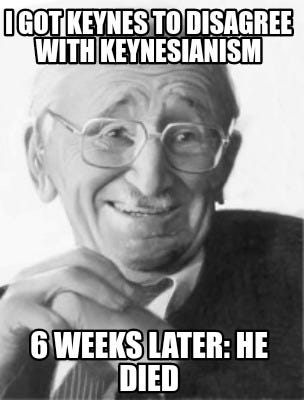Economic Truths & Financial Nihilism
How juicing the financial system builds division and volatility
The most dangerous creation of any society is the man with nothing to lose. James Baldwin
FORD PREFECT: Six pints of bitter and quickly please. The world’s about to end.
BARMAN: Oh yes sir nice weather for it. Going to watch the match this afternoon?
FORD PREFECT: No, no point.
BARMAN: Foregone conclusion you reckon sir. Arsenal without a chance?
FORD PREFECT: No it’s just that the world’s going to end.
BARMAN: Ah yes you said. Lucky escape for Arsenal if it did.
FORD PREFECT: No, not really
BARMAN: There you are sir, six pints.
FORD PREFECT: Keep the change.
BARMAN: What from a fiver? Thank you sir! Douglas Adams.
Things Improving
US Democrats struggle to understand why the broader electorate doesn't appreciate the strong economy sufficiently to reflect in Biden's poll rating. The hot economy has grown jobs while inflation has fallen. Over the past year, the average US home price has appreciated, and the stock market is up 25%. Things are looking up, what’s not to like?
Turning it on
Ahead of the only poll that matters in November, the Biden team is turning on all the liquidity taps at its disposal. The Strategic Petroleum Reserve (SPR), the Treasury General Account (TGA), the Reverse Repo Reserves (RRR), and the Fed's Balance Sheet (QT) have all been utilised to flood the economy with liquidity to confect the feel-good factor. Yet, economic measures are starting to deteriorate and as the government releases its hoards of cash and oil, companies have stopped hoarding labour. The result? Job prospects are not what they were.
Special K
However, there is a more fundamental reason why the "deplorables" don’t get it. The reality is there is more than one economy, and different people feel their impacts differently. Those receiving from an expansionary fiscal policy are a distinct cohort from those punished by tighter monetary policy. What some have called a K-shaped recovery impacts the indebted poor differently from asset-rich, mortgage-free boomers.
Different Folks
This month, the University of Michigan consumer sentiment survey recorded one of its sharpest one-month declines ever. At the same time, American Express CFO Christophe Le Caillec told CNBC, citing spending on flights and dining out, "They're certainly enjoying life. Our customers are doing rather well." When it comes to the economy, we each have our “own truth”.
Different Strokes
The partisan divide on how well the US economy is doing has never been greater and is only likely to be made worse by the planned student loan forgiveness measures. As Philip Pilkington points out,
Former Treasury Secretary Larry Summers’ recent analysis shows that if inflation was measured in the same way that it was measured during the last bout of price rises in the 1970s, it peaked at 18pc in November 2022, far higher than the 9.1pc shown by the official data.
Macro strategist Andreas Steno Larsen posted on the latest inflation data: if you don’t have a car or a home inflation is gone.
Melt Up
In markets this week, no sooner had the lower-than-expected inflation print come in than Ed Yardeni was on Bloomberg warning that if the Fed cuts rates prematurely, it risks triggering a market melt-up.
The concern I have is if the Fed does start to lower interest rates that could create a meltup, and that would be an issue for me.
He was a bit late. As he spoke, markets rallied strongly, and all the recent liquidity-fuelled favourites, such as crypto-currencies, and meme-stocks, continued their dramatic recent revival.
Hello Kitty
Patrick Hoskings reported in the Times.
A single posting on Roaring Kitty’s Twitter/X account, which had been silent for three years, was enough to ignite excited talk of a rerun. The post carried no words, just a drawing of a man leaning forward in his chair: a meme commonly used to denote exciting action ahead. In the next two days shares in GameStop and AMC — still unloved by institutional investors and still a favourite of the shorters — soared by 179 per cent and 135 per cent respectively. The sums were astonishing: $9.4 billion was added to the market value of GameStop alone. It was “meme stock déjà vu”, The New York Times noted.
Philosophical
A dead German called Nietzsche indicated that adopting life-denying beliefs is an unconsciously deployed coping strategy, utilised by individuals weary of life and unable to engage effectively with the world. Such belief systems, which are literally lethal, are increasingly observable in daily life, financial markets included.
Number Go Up
Hoskings describes the return of financial nihilism revived with the comfort blanket of easier financial conditions. Simply put financial nihilism results in an increase in reckless investments and gambling by people who believe that the system is rigged against them. We have a generation without belief in a long-term career or capital accumulation of savings and pensions, which has become more interested in moonshot bets and gamified finance than following the traditional finance rails of prior generations. David Portnoy, the founder of Bar Stool Sports, pizza reviewer and social media personality Davey Day Trader, speaks for this group.
Let Them Do Lotto
The appeal of lotteries, sports betting, and gamified versions of finance is not new. Their appeal to society's less well-off has been known for a long time. However, as our financial system is increasingly manipulated to hit short-term political targets and single-objective policy goals, a rapidly growing demographic has nothing to lose. Worse, the economic establishment creating this chaos remains blind to the consequences of its actions.
We’re All Gonna Die
John Maynard Keynes was not known for his consideration of the long-term consequences of policy. His work came to prominence in the period of reconstruction after WW2, and much of it was adopted at Bretton Woods as the foundation of the new international financial order. A man who had no children and famously said that in the long run, we are all dead was unlikely to be overly concerned for humanity's future plight.
Forty-Two
It is worth considering Elon Musk in this regard. An avid reader of dystopian sci-fi books as a young child, Musk has spoken of suffering from depressive and nihilistic episodes as he considered man’s helpless and meaningless position in the universe’s vastness. (Something that the bongo-playing physicist Richard Feynman explains here with great humour). However, after reading Douglas Adams’ acclaimed adventure into sci-fi absurdity, The Hitchhiker's Guide to the Galaxy, Musk claims to have been inspired to worry less about life’s meaning (the answer is 42) and instead strive to spread humanity’s consciousness into space. The father of eleven’s SpaceX company quotes him in its mission statement:
You want to wake up in the morning and think the future is going to be great - and that’s what being a spacefaring civilization is all about. It’s about believing in the future and thinking that the future will be better than the past. And I can’t think of anything more exciting than going out there and being among the stars. Elon Musk
So what are the implications for investors of all this?
Lower interest rates amplify fiscally loosened and juiced-up financial conditions, causing Dollar liquidity to flood into risk assets.
Ed Yarden’s warning of a market melt-up looks prescient. All risk assets can roar if inflation persists, but real assets will prevail.
Short squeezes will become more aggressive as liquidity returns. [BT, the UK’s 17th largest company, rose by 17% yesterday because its new CEO had achieved cost-cutting plans earlier than expected. Allison Kirkby said, “I always love to squeeze the shorts . . . and prove them wrong.”]
Real Cost of Drinking
Douglas Adams wrote The Hitchhikers Guide to the Galaxy in 1979 when Elon Musk was 9 years old. That year, the average price of a pint was 34p. Ford Prefect’s offer to the barman at the Red Lion to keep the change from a fiver for six pints was an act of recklessness that could only result from a world-ending event. This is exactly the kind of behaviour witnessed in our financial markets today. With the average price of a pint approaching a fiver, it is only a matter of time before draught beer is removed from the UK’s inflation basket. I need a drink.
Jeremy
17/05/2024










